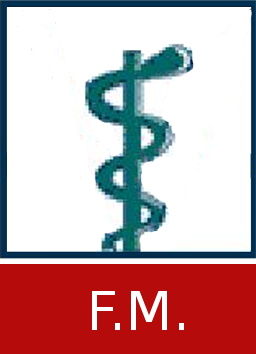Maintenance of ISO 9001:2015 Quality Management System (QMS) and feasibility study on the implementation of Good Laboratory Practice (GLP) in the preclinical department at Artialis
Hebrans, Mathilde 
Promotor(s) : Antoine, Christophe ; Boileau, Christelle
Date of defense : 5-Jul-2021 • Permalink : http://hdl.handle.net/2268.2/12480
Details
| Title : | Maintenance of ISO 9001:2015 Quality Management System (QMS) and feasibility study on the implementation of Good Laboratory Practice (GLP) in the preclinical department at Artialis |
| Translated title : | [fr] Maintenance of ISO 9001:2015 Quality Management System (QMS) and feasibility study on the implementation of Good Laboratory Practice (GLP) in the preclinical department at Artialis |
| Author : | Hebrans, Mathilde 
|
| Date of defense : | 5-Jul-2021 |
| Advisor(s) : | Antoine, Christophe
Boileau, Christelle |
| Committee's member(s) : | Maesen, Philippe 
CHIAP, Patrice 
Mertens, Bénédicte |
| Language : | English |
| Number of pages : | 69 |
| Keywords : | [en] ISO 9001 [en] Quality Management System [en] QMS [en] Good Laboratory Practice [en] GLP |
| Discipline(s) : | Human health sciences > Multidisciplinary, general & others |
| Target public : | Professionals of domain Student |
| Institution(s) : | Université de Liège, Liège, Belgique |
| Degree: | Master en sciences biomédicales, à finalité spécialisée en assurance qualité |
| Faculty: | Master thesis of the Faculté de Médecine |
Abstract
[en] This master thesis in Biomedical Sciences, specializing in Quality Assurance, was carried out at Artialis, a company located in the Liege University Hospital compound.
Artialis is a Contract Research Organization (CRO) specialized in the field of musculoskeletal health. The company offers its services to clients of pharmaceutical companies, medical devices in human and animal health, and food supplements companies.
Certified since 2012 with ISO 9001:2008, the first objective of my master thesis is the maintenance of ISO 9001:2015 Quality Management System (QMS) with the participation and preparation of audits. The knowledge of the requirements for this standard is essential for the successful completion of the quality system audits.
In a second phase, the objective is to determine whether the preclinical department could obtain "Good Laboratory Practice (GLP)" certification for its efficacy studies. For this purpose, a feasibility study on the implementation of GLP was undertaken. A gap analysis was conducted to identify gaps between the existing quality system in preclinical and the GLP Principles of the Organization for Economic Cooperation and Development (OECD).
The gap analysis was a long lasting work remotely executed (due to Covid-19) with an internal documentary search and interviews with members of the preclinical department. The results of this analysis were presented to the department direction so she can determine whether the company wanted to head in the certification direction or not.
Eventually, the company was looking for an overview of new potential standards that they could implement in the preclinical department. They were particularly interested by the ISO 10993, Part 6 after having observed its deployment with one of their customers. They requested to study the applicability and advantages in the scope of their business.
[fr] Mon mémoire de Master en Sciences Biomédicales à finalité spécialisée en Assurance Qualité a été réalisé au sein de la société Artialis, située dans le CHU de Liège.
Artialis est une société de recherche contractuelle spécialisée dans le domaine de la santé musculosquelettique. La société offre ses services aux clients d’entreprises pharmaceutiques, de dispositifs médicaux en santé humaine et animale ainsi qu'aux entreprises de compléments alimentaires.
Certifiée ISO 9001:2008 depuis 2012, le premier objectif de mon mémoire de master consiste au maintien du Système de Management de la Qualité (SMQ) ISO 9001:2015 avec la participation et la préparation aux audits. La connaissance des exigences de cette norme est essentielle pour mener à bien les audits du système qualité en vigueur.
Dans un second temps, l'objectif est de déterminer si le département préclinique pourrait obtenir la certification "Bonnes Pratiques de Laboratoire (BPL)" pour ses études d'efficacité. À cette fin, une étude de faisabilité de l’implémentation des BPL a été entreprise. Une analyse des lacunes a été réalisée pour identifier les écarts entre le système de qualité existant au sein du département préclinique et les principes de BPL de l'Organisation de Coopération et de Développement Économiques (OCDE).
L'analyse des lacunes a été un travail de longue haleine exécuté à distance (en raison du Covid-19) avec une recherche documentaire interne et des entretiens avec les membres du département préclinique. Les résultats de cette analyse ont été présentés à la direction du département afin de déterminer dans quelle direction Artialis souhaitait s'orienter, vers la certification ou non.
Finalement, l'entreprise a cherché à obtenir un aperçu des nouvelles normes potentielles qu'elle pourrait mettre en œuvre dans le département préclinique. Elle était particulièrement intéressée par la partie 6 de la norme ISO 10993, après avoir observé son déploiement chez l'un de ses clients. L’étude de son applicabilité m’a été demandée ainsi que ses avantages dans le cadre de leurs activités.
File(s)
Document(s)

 Master-thesis-Mathilde-Hébrans.pdf
Master-thesis-Mathilde-Hébrans.pdf
Description: -
Size: 3.44 MB
Format: Adobe PDF
Cite this master thesis
The University of Liège does not guarantee the scientific quality of these students' works or the accuracy of all the information they contain.


 Master Thesis Online
Master Thesis Online



